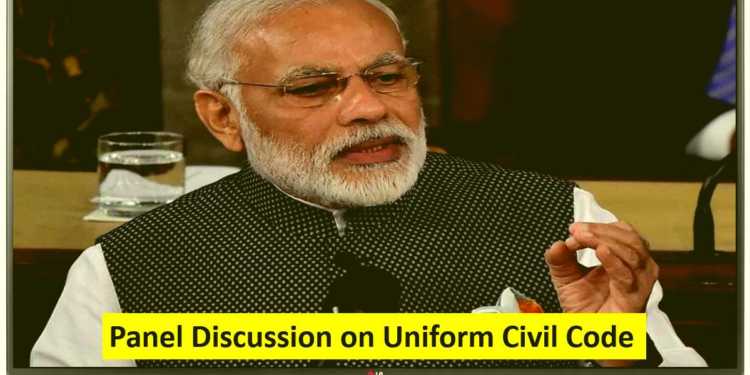The law ministry will soon have its own television channel. The channel will broadcast legal discussions, short films, documentaries, and legal education shows. Filmmaker Prakash Jha is likely to produce some of this content, which will base itself on research from the best law universities of the country. The aim is to bring about legal awareness among the masses. In the current government’s scheme of things, this is necessary more than ever today. The country has probably never been this close in bringing about some much-needed big ticket legal reform.
The entire pseudo-secular narrative upon which the country’s polity and civil society functioned, has finally crumbled. The BJP has replaced the Congress Party as the country’s principal political choice. A saffron-clad yogi now rules the country’s largest state, and has found acceptance across the board. Elections are not won based on caste arithmetic and promises for reservation anymore. Instead, they are won when commitments are made to do away with triple talaq. They are won when crematoriums are promised alongside graveyards, when electricity is promised on Diwali just as it is supplied freely on Ramzaan. Those who fail to see the difference between the former and the latter are too caught up with the pseudo-secular narrative. The former quite literally espouses discrimination on the basis of identity, while the latter seeks to put an end to such discrimination.
The Indian public has whole-heartedly supported the latter. It is a sign of maturity. It is a sign of anger at the same time, directed towards the old order for having cheated them repeatedly. But most importantly, it is a sign for the government. The government understands that the monopoly over what it means to be progressive isn’t held exclusively by the self-proclaimed flagbearers of liberalism. If the mood of the nation is any indication, the government must carry out what it has always promised, and what it has always believed to be progressive. India seems to be ready for it, it seems to be asking for it.
Every major regional player in Uttar Pradesh is caste-based. Yet, the BJP won the Uttar Pradesh elections this time due to a consolidation of Hindu votes. The reason such a consolidation took place is quite obvious- people have had enough of institutionalized religious discrimination, and want it abolished. What is strange is that at several levels, this institutionalization is not imposed but inherent. Personal laws of different religions are accepted by the Indian constitution despite the existence of Article 44 of the directive principles, which states: “The State shall endeavor to secure for citizens a uniform civil code throughout the territory of India.” Successive governments have flouted this article. It seems we have one at last which will dare not to flout it, and will attempt to end religious discrimination in India.
Personal laws- laws regarding marriage, divorce, inheritance, maintenance and adoption- differ from community to community. They are based mostly on scriptures and customs. Sometimes they are so regressive that a practice such as triple talaq which is legal in India, has been scrapped even by our rogue Islamic neighbor Pakistan. The argument for the upkeep of practices such as triple talaq and polygamy hinges on Article 25, which upholds the right to freely practice and profess one’s religion. Not only is this in direct contradiction with Article 44 mentioned earlier, it is also in contradiction with every article and fundamental right which seeks to uphold freedom and equality. Unfortunately, certain religions are such that their practice and propagation are assaults on ideals such as freedom and equality.
How does one wriggle out of a constitutional conundrum such as this one, especially if one wants India to take the next step forward? The government has already sent questions to the Supreme Court regarding the legal validity of triple talaq and polygamy, and the arguments will take place in the months to come.
The soon-to-be-launched Law Ministry television channel “will probably carry out such discussions”, and spread awareness about issues such as these among the public.
The courts will play their parts, but the public too must be kept in the loop. The discourse must continue publicly. The masses are beginning to understand that whether somebody walked into India in the tenth century or the fifteenth, there is no good reason for anyone to impose their ways of life upon us. This by itself is a major awakening, let us hope the Law Ministry television channel helps in sustaining the momentum.




























